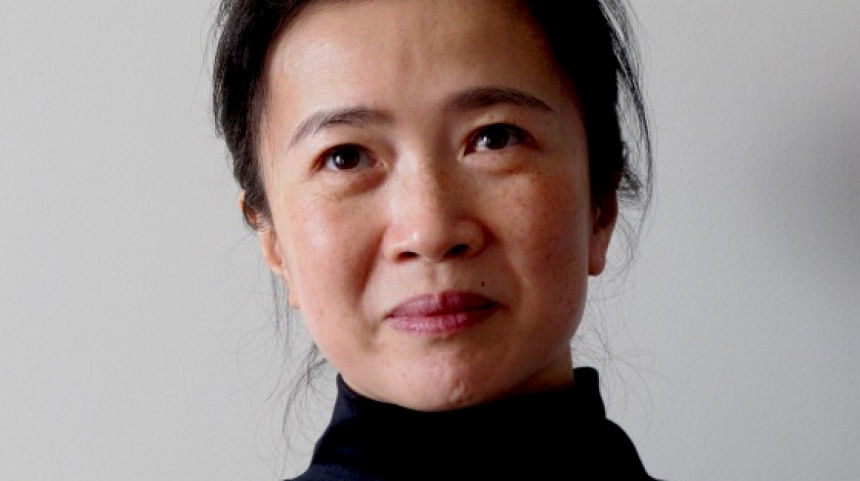Linda Rui Feng’s ‘Swimming Back to Trout River’: Of music, migration, Mao Zedong’s China, and more

Spanning nearly three decades and moving back and forth between Communist China and the United States, Linda Rui Feng's debut novel, Swimming Back to Trout River (Simon & Schuster, 2021), follows a family fractured by physical and emotional distance.
The story begins in 1981 as 5-year-old Junie is sent to live with her paternal grandparents in their home in Trout River, a small village in China. Her father, Momo, recently relocated to the US to pursue his graduate degree, and her mother, Cassia, is due to follow. Years later, Junie receives a letter from her father, promising to bring her to the US by her 12th birthday. Born with congenital amputation of legs below her knees, Junie is determined to stay with her beloved grandparents in the peaceful countryside, vowing to swim back to Trout River if they send her away. Whisking the reader back in time, the narrative then shifts its focus to the intertwined lives of Momo, Cassia, and Momo's former friend, Dawn. It portrays the various hardships that these three characters face during and after China's Cultural Revolution—in China, life under Mao Zedong's rule is filled with violence and oppression. The characters are consequently forced to bear the compounding weight of historical alongside personal tragedies, such as deferred ambitions, deaths of loved ones, postpartum depression after stillbirth, and more.
At the heart of Feng's novel lies the Chinese concept of yuanfen, a condition that "acknowledges some unknowability in the workings of the universe, and it implies that there is an invisible mesh that loosely binds people and circumstances"; it draws the characters together, separates them, and reunites them in unexpected ways. Music is another thread that wordlessly guides, inspires, and connects the characters of the story. On the cusp of the Cultural Revolution, Dawn, an aspiring violinist, meets and makes a mark in the life of Momo, an engineer, introducing him to the beauty of classical music and teaching him how to play the violin. Even after they go their separate ways, music plays a prominent role in their lives, ultimately causing their stories to overlap once again. The novel, too, like a good arrangement of classical music, gradually gathers pace and rhythm as it introduces and elucidates themes of love, loss, grief, and resilience.

With lyrical clarity and keen insight, Feng movingly explores what it means to be a Chinese immigrant in the US during the 1980s. In China, Dawn had to give up playing the violin because classical music was considered counter-revolutionary. In her adopted country, however, her dreams and desires suddenly become tangible and achievable. This kind of freedom provides each character with a sense of purpose and hope. Momo finds himself making new friends and focusing on his graduate studies as he eagerly waits for his family to reunite; Cassia learns to become independent as she wrestles with the ghosts from her past; and Dawn follows her dreams of becoming a successful composer as she grapples with her growing sense of otherness. Yet, Feng makes it evident in her book that no matter how hopeful the situation, freedom comes at a price. The characters have to give up what it hurts most to lose—family ties and their sense of rootedness.
The beauty of Swimming Back to Trout River rests in the depth of its unforgettable characters; they are flawed, complex, and multilayered. Their journeys, full of moments both beautiful and tragic, are bound to leave footprints across the reader's heart. The only flaw is perhaps the lack of focus on Junie's perspective. The novel begins and ends with Junie, but it is the stories of her parents and Dawn that lend the most emotional drama. Although this minor quibble does not detract from the book's powerful achievements, some extra flesh would have strengthened the overall narrative, because the reader longs for more of the little girl's story.
Jahin Kaiissar is a contributor. Reach her at [email protected].

 For all latest news, follow The Daily Star's Google News channel.
For all latest news, follow The Daily Star's Google News channel. 



Comments